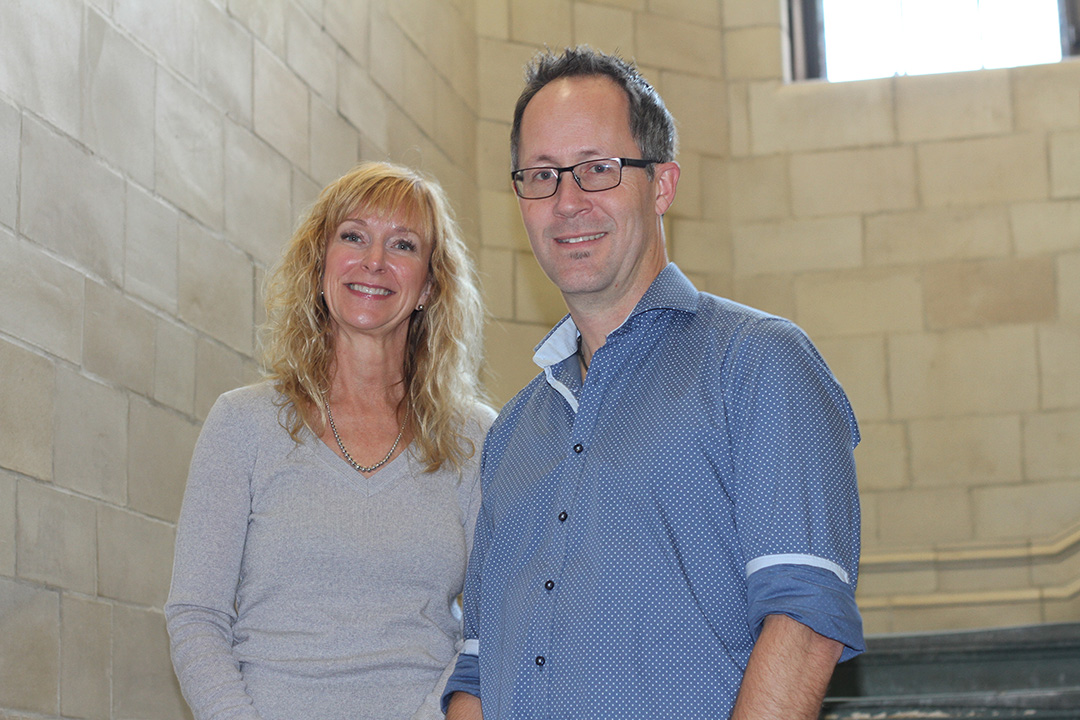
Revised USask learning charter approved
The University of Saskatchewan (USask) has refreshed and revised its learning charter to reflect new aspirations and expectations.
By Meghan SiredIn October, University Council approved an updated learning charter that better reflects the perspectives, roles and circumstances of the diverse USask community, according to Dr. Patti McDougall (PhD), Vice-Provost of Teaching, Learning and Student Experience.
“Like all foundational documents, the learning charter maps out what the university community aspires to be and how individuals can stand behind their commitments,” said McDougall, who acknowledged the work of the late Rick Long, a professor in the Edwards School of Business, who led the first learning charter initiative in 2010.
One of the drivers behind reviewing the learning charter was Indigenization and mapping out expectations that have to do with content and experiences grounded in Indigenous worldviews, according to McDougall.
“The aspirations that we have around Indigenization should make their way into all of our foundational documents, not just animated in an Indigenous strategy—and this is an example of that,” said McDougall. “If we realize the goal of having the learning charter be a foundational document, we can do more. One obvious place would be in the standards that we have for things like tenure and promotion. If we are asking our colleagues as educators to make certain commitments, are we actually reflecting those commitments in the standards that we hold up for people to get tenured and promoted?”
The revised document, officially titled Our Learning Charter, includes Indigenous language and concepts, including a change in vocabulary. The term learning journey was added to the revised charter, and the term learning goals was replaced with learning pursuits.
“People come to the university for different purposes: to teach, earn degrees, do research, support learning, or explore personal interests like culture, athletics and leadership,” said Dr. Stryker Calvez (PhD), manager of Indigenous Education Initiatives at the Gwenna Moss Centre for Teaching and Learning.
“We chose language for the learning charter that more holistically reflects the diverse pursuits of our university community and that recognize learning is a lifelong journey,” said Calvez.
The term educators is used instead of referring specifically to faculty and instructors. This term is more inclusive and acknowledges the university is a place of learning no matter your position, according to Calvez, who worked with Indigenous and non-Indigenous faculty, students and staff through the Teaching, Learning and Academic Resources Committee (TLARC) of University Council in developing the revised version.
“Indigenization is an ever-changing, evolving process, and often it feels uncomfortable because of shifting language, ideas and processes,” said Calvez. “In being collaborative, the transformation of our campus and incorporation of new worldviews, beliefs, histories and more, can create discomfort.
“However, this is a necessary part of exploring and determining what Indigenization means to everyone and how best to manifest this in documents and activities. In the learning charter, we looked for ways to make it broader and more inclusive without losing the original intent and value.”
According to Calvez, some felt the content of the original learning charter spoke to them and reflected their perspectives, while others, including some graduate, international and Indigenous students, didn’t understand the purpose of some of the statements or what they meant.
“We’ve had international students, Indigenous students, and others look at the new charter and say, ‘OK, not all of it fits me, but some of it does. I can see a piece of me in here,’” said Calvez. “I think that accomplishment is something worth recognizing and cherishing.”
To help ensure the charter is accessible and relevant to members of the university community, members of TLARC are developing an implementation plan, which will involve professional development, supportive resources, and changing policies and procedures where appropriate.
McDougall said Gwenna Moss Centre staff will also be available to work with colleges, schools or administrative units to develop their own implementation plan.
“If we want to implement this fully, we’re just going to have to keep at it, keep sharing it with students, and keep it applicable,” said McDougall. “It’s distinctive to the University of Saskatchewan and, therefore, if we’re successful in using it to drive our thinking and our actions in this area, then I think that’s something to be proud of.”

